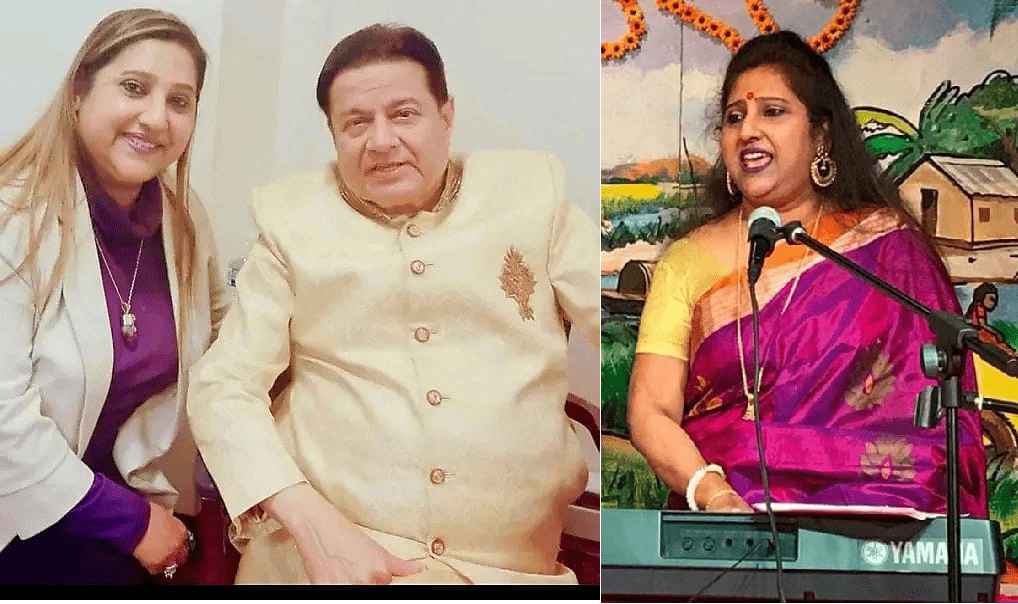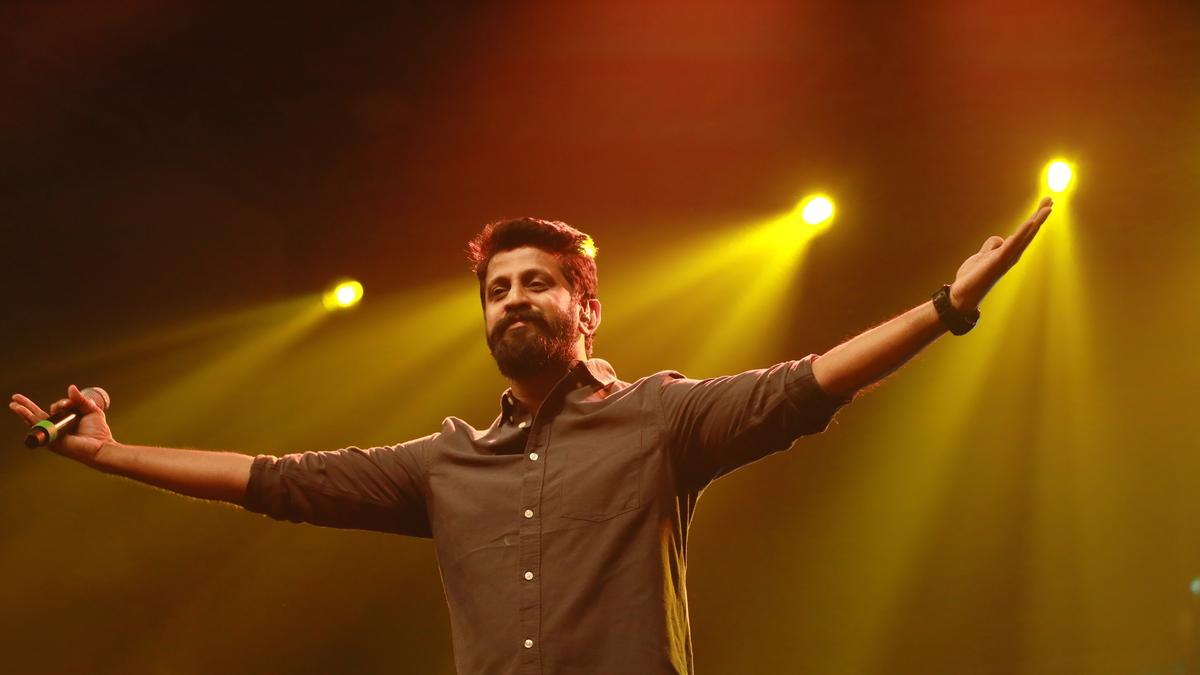[ad_1]
“It’s the first time that Operalia is being held not only in India, but also in south Asia,” says NCPA chairman Khushroo N. Suntook. Adds Placido, who will also preside over the jury, “I first performed in India at a concert conducted by my friend Zubin Mehta in 2009, to mark his father Mehli Mehta’s centennial. I look forward to reuniting with the Indian public.”
Soprano Sasha Cooke performing during SOI Spring 2024 Season conducted by conductor Martyn Brabbins at Jamshed Bhabha Theatre, NCPA
| Photo Credit:
Narendra Dangiya
To be held from September 15 to 21, the competition invites participation from singers between the ages of 20 and 32, covering all voice types. Out of hundreds of applicants, the auditions of the leading 30 or 40 singers are shortlisted. According to maestro Placido’s son Alvaro, who is also Operalia vice-president, “The pre-judges look at qualities such as technique and musicality. The judges in the final round consider various intricacies to choose the best singer. We do not have separate categories for men and women, as the idea is to choose the most promising voice. It’s a process that has worked.”
Though opera has a limited following in India, and is focused around the metros, the news of hosting Operalia has been welcomed. Says Mumbai-bred British soprano Patricia Rozario, “It is a prestigious competition and the NCPA has been the place for music-making. Our audiences and musicians will have a chance to hear the high levels of performance that exist all over the world.”
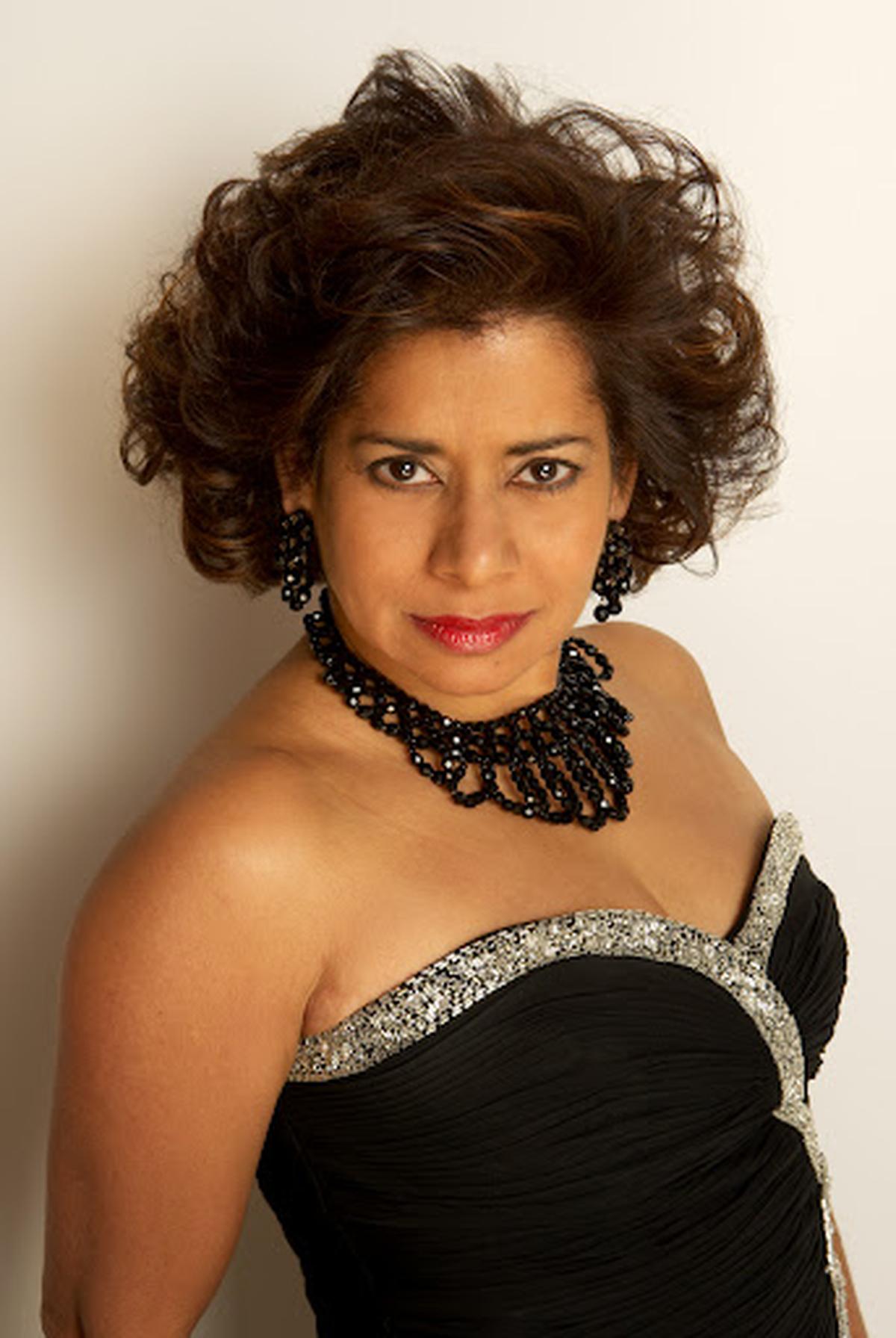
Mumbai-bred British soprano Patricia Rozario
| Photo Credit:
Special Arrangement
The opera circuit can involve full-fledged operas, or events involving operatic singing. Among staged performances, the tendency in India is to have more comic operas than serious ones, as they are easier to understand. Though the overall audience is limited, shows have drawn full houses. As opera fan Cawas Engineer says, “Many people come to such shows to be seen, and look at them as a social outing. But some end up taking more interest in the genre.”
Asad Lalljee, curator of Royal Opera House, Mumbai, who passed away recently, felt that though people are exposed to more global cultures, opera is essentially a foreign concept, involving a foreign language. So when choosing productions, it has to be made sure that they are accessible to the audience.”
According to Patricia, selecting the right opera makes a huge difference. “We did an Italian opera, Domenico Cimarosa’s The Secret Marriage, at the Royal Opera House in Mumbai. I knew the story was perfect for India because it was a comedy about various types of marriages. Our four shows were sold out. The singers sang in Italian, and the audience loved the comedy and the music.”
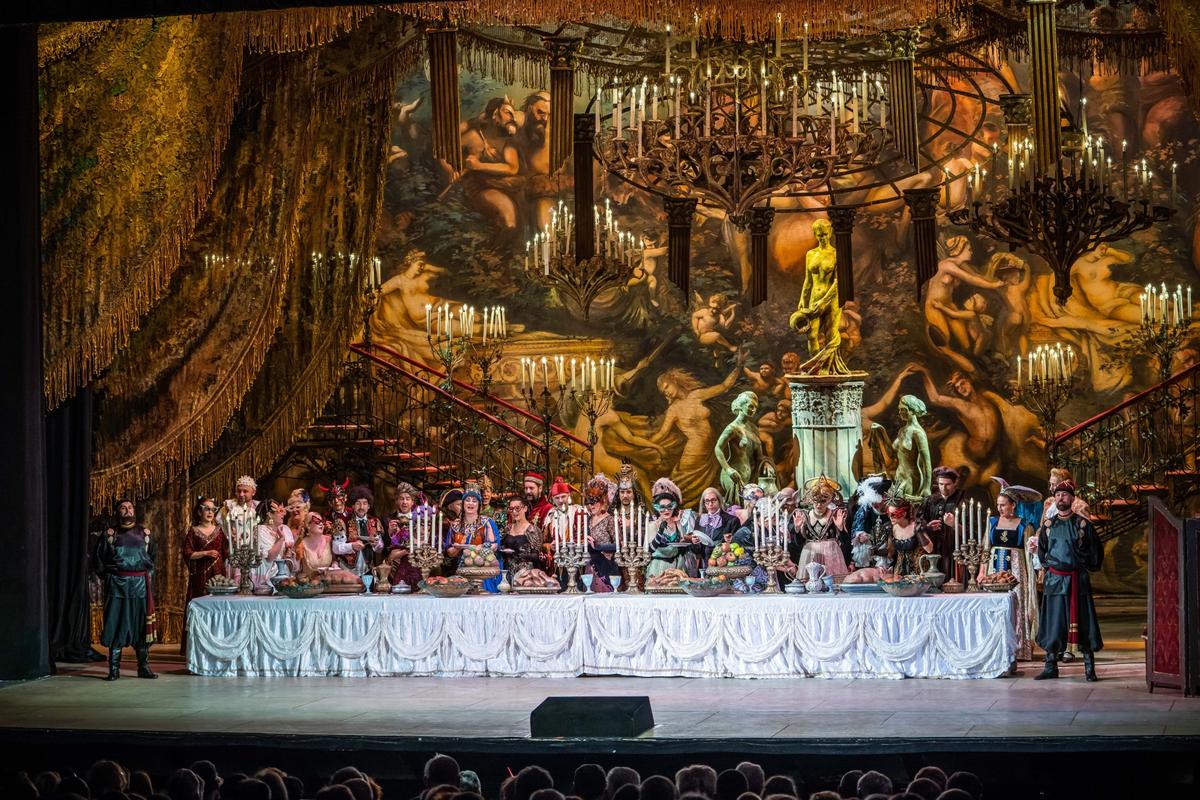
Die Fledermaus, one of the most brilliant Austrian operettas was composed by Johann Strauss II.
| Photo Credit:
Special Arrangement
Similarly, NCPA’s Khushroo feels Indian audiences have a sense of operatic understanding because of their love for song and dance through movies, a feature also found in opera. Interestingly, Mumbai’s other big auditorium — the Nita Mukesh Ambani Cultural Centre (NMACC) Grand Theatre hasn’t hosted an opera in one year of operations, but has focused on musical theatre with events such as The Sound Of Music, West Side Story, Mamma Mia! and Mughal-e-Azam.
The NCPA, on the other hand, has had regular shows. In 2022, it hosted Austrian maestro Johann Strauss II’s Die Fiedermaus and Hungarian composer Ferenc Erkel’s The Viceroy Bank. It also has regular screenings of famous operas. In 2019, the Opera Gala featured the Symphony Orchestra of India (SOI) conducted by Zane Dalal with New Zealand tenor Simon O’Neill and soprano Amanda Atlas. It also gets acclaimed opera singers for the SOI seasons. In February, American mezzo-soprano Sasha Cooke performed the repertoire of French composer Hector Berlioz, in a show conducted by Martyn Brabbins. “I was happy to see such a wonderful and appreciative audience in India. Brabbins is the ideal collaborator, and he’s positive,” she says.
For its part, the Royal Opera House has hosted opera shows since it was restored in 2016. Early performances featured Patricia and her husband, tenor Mark Troop, and the Royal Opera Gala by Delhi-based Neemrana Foundation. Besides a tribute to famed Mumbai opera singer Celia Lobo, spearheaded by her daughter Deirdre Lobo, the venue has hosted intense workshops conducted by Mark.
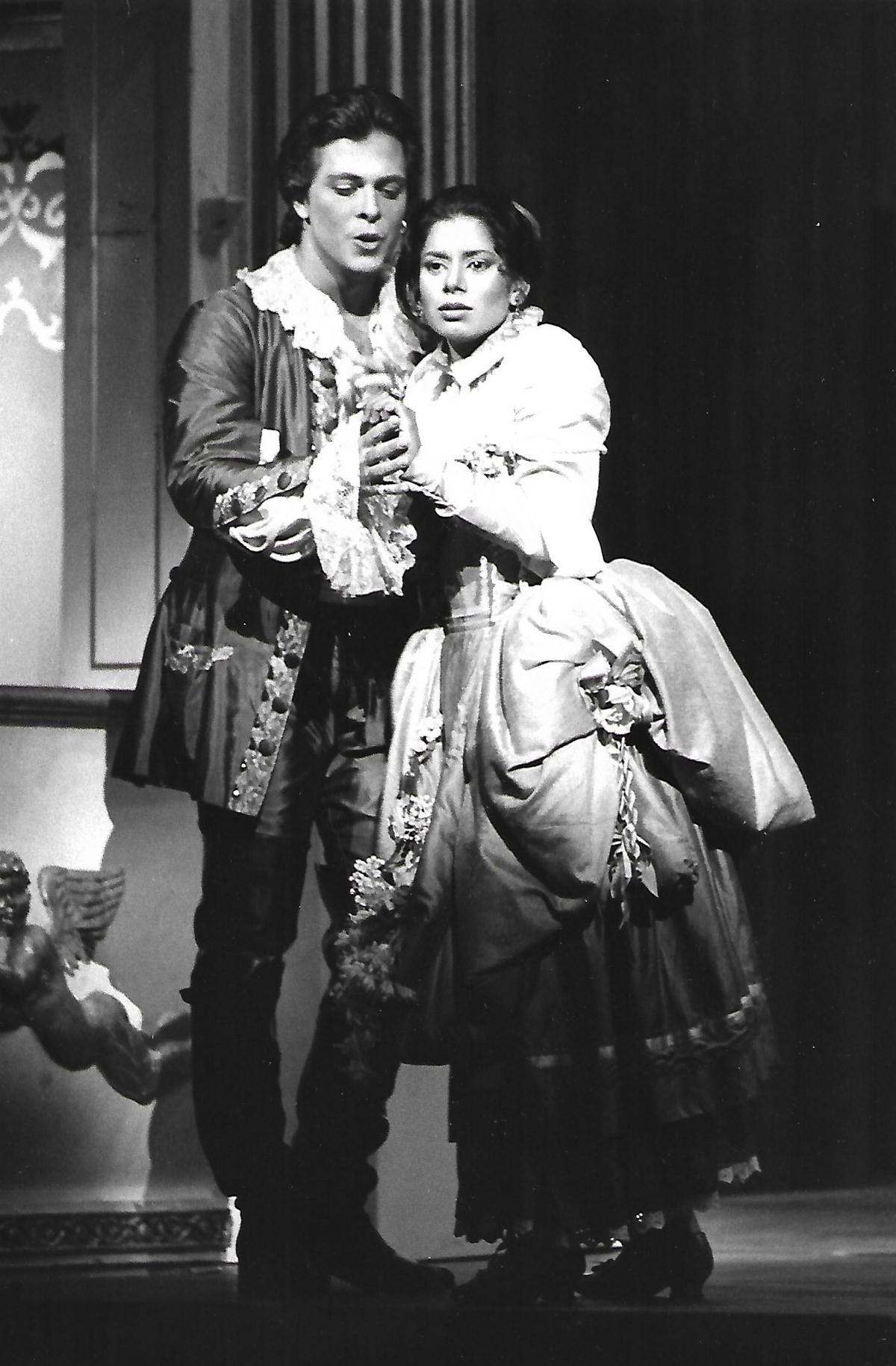
Patricia Rozario in Don Giovanni, is an opera in two acts with music by Wolfgang Amadeus Mozart and was performed in 1787.
| Photo Credit:
Special Arrangement
The budgets required are high. For instance, Royal Opera House has to look for support from consulates or bodies teaching foreign languages.
One of the focal areas in the community is to train opera singers. Institutions such as the Neemrana Foundation, Delhi School of Music and Delhi Chamber Choir, which has produced promising talent like soprano Vaibhavi Singh and tenor Gaurav Vohra, have played a role. In 2009, Patricia and Mark started the Giving Voice to India project. Says Patricia, “We first came on a tour when we heard singers from Mumbai, Delhi, Pune and Goa. There was eagerness to learn, and we started visiting India three times a year to conduct an intensive programme of technique, repertoire and pronunciation of European languages.
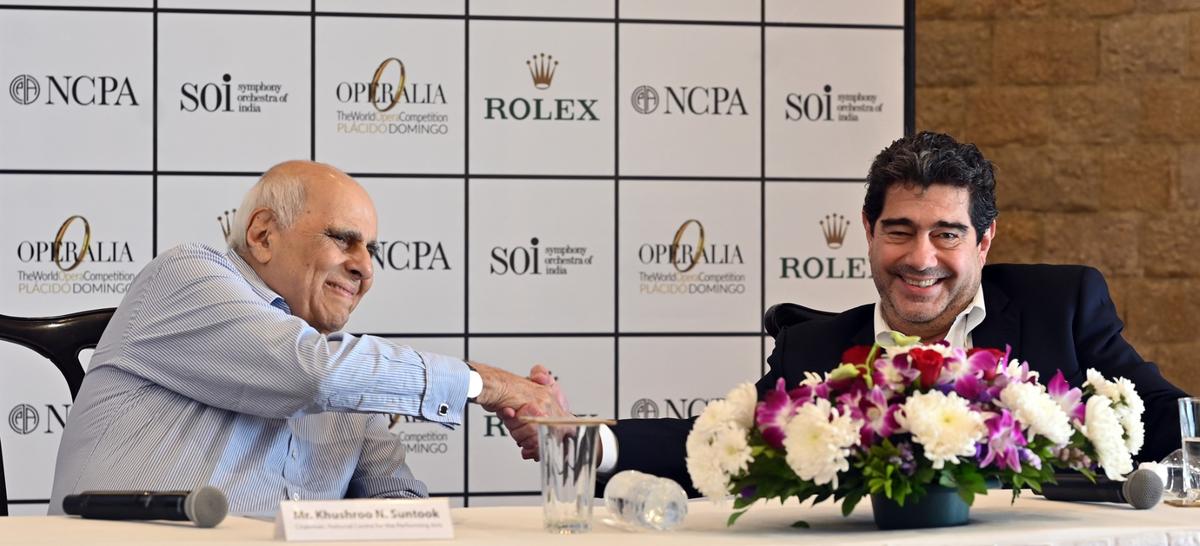
NCPA chairman Khushroo N Suntook and Alvaro Domingo, Operalia vice-president
| Photo Credit:
Special Arrangement
Patricia points out that there are many choirs in India and the standard of choral singing has improved a great deal. “However, opera is a more soloistic form and demands greater development of vocal soloists. As a result, local productions of opera are infrequent and at a low level. Today, quite a few young Indians study music abroad and we look forward to a time when they can come back to India to perform in a production,” she says.
According to mezzo-soprano Cooke, operatic singers need to take care of their bodies and voices continuously.
If anything, the forthcoming Operalia in Mumbai may help create new audiences for the genre. As Alvaro Domingo says, “Some regions have always been more prominent in our competitions. We have more singers from the U.S., South Korea and Japan. One hopes the forthcoming edition encourages young singers from India to learn opera.” Who knows, there might be an Indian winner some time.
[ad_2]
Source link


